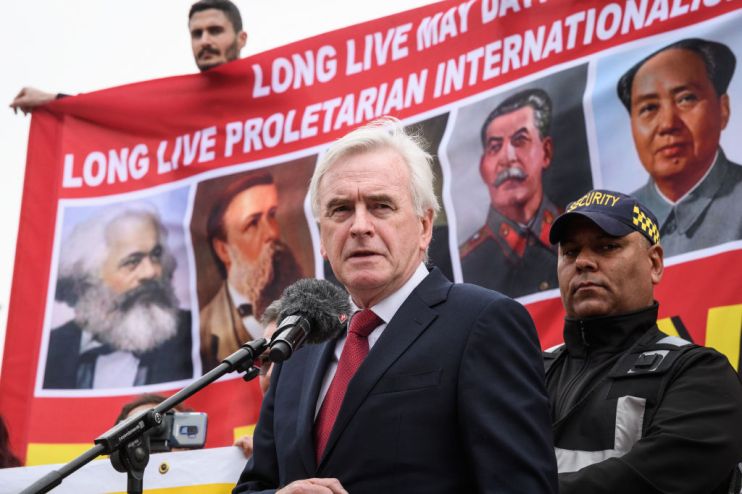Britain cannot afford to ignore Labour’s interventionist agenda

For the past three years in Westminster, it’s been difficult to think more long-term than the next few hours.
Nearly every day has dragged us further into uncharted political territory.
Meaningful votes, Brexit extensions, and leadership contests have been making and shaping history – though it would be fair to say that for all the chatter, little substantial had changed up until this past week.
The political realignment, predicted by academics like my colleague Dr Steve Davies, has now been accelerated. We are witnessing the overhaul of party allegiance in real time. The left-right divide has become secondary to the fight between populist protectionism, and liberalism.
While tensions among Conservatives have been steadily simmering for years, in just three short days a fundamental split and shift in the oldest party in modern history has occurred
Whenever the looming General Election comes, the Conservative party will not look remotely like it did the last time it asked the public for their votes in 2017. Down 23 MPs (so far) because of its unapologetic “do-or-die” stance on leaving the EU by 31 October, it will be going to the polls with a hardened and clearer line than it had before.
So will the Labour party, but on very different grounds.
Labour has had a topsy-turvy relationship with Brexit, having U-turned dramatically over the past two years to now back a second referendum. But on the economy, Labour’s top team have been quietly and swiftly doubling down on an interventionist agenda.
And with the government focused on European affairs, there has been little scrutiny on the opposition’s plans for higher taxes and more spending.
In the midst of Brexit upheaval, the Financial Times has been running a series on the Labour party’s agenda: its ideology, its plans, and the cost of its policies if implemented.
This week, the research estimated that the party would need “at least £26bn in new tax rises” to “end austerity” according to Labour’s own definition of the term. It would also confiscate roughly £300bn worth of company shares to carry out its plan for “inclusive ownership funds”, in what researchers describe as “the biggest state raids on the private sector to take place in a western democracy”.
The costs of these proposed policies would be economically damaging in their own right, but this could just be the beginning. The party is increasingly advancing plans for mass redistribution, in ways which appear to be in direct conflict with the pillars of a free society.
Labour is not stopping at nationalising parts of private companies, which on its own threatens fundamental aspects of liberalism and private property; it is turning to housing as well.
Shadow chancellor John McDonnell has plans to implement a “right to buy” scheme for private tenants (which, it has been suggested, would not have to be sold at market rates).
This would break the fundamental principle of property rights, which does not allow other people to use or take your belongings from you without your permission.
As Dr Eamonn Butler succinctly put it in his IEA book Foundations of a Free Society, “freedom creates prosperity”.
Political parties, by nature, tinker at the edges of these freedoms, debating marginal tax rates, the merit of regulations, and how prevalent the state should be in our daily lives. But it should be a cause of great concern when there is talk of expropriating private property, without any meaningful challenge from the other side.
Brexit will be dominating politics for the foreseeable future. But it shouldn’t be forgotten that the last General Election was supposed to be fought on such grounds, and quickly diverted to the domestic policy issues that, according to public sentiment, had been neglected for far too long.
If we don’t push ourselves to see past the next few hours, days, or weeks, we risk overlooking major plans to reshape our economic and social futures – for the better, and most certainly for the worse.
Main image credit: Getty